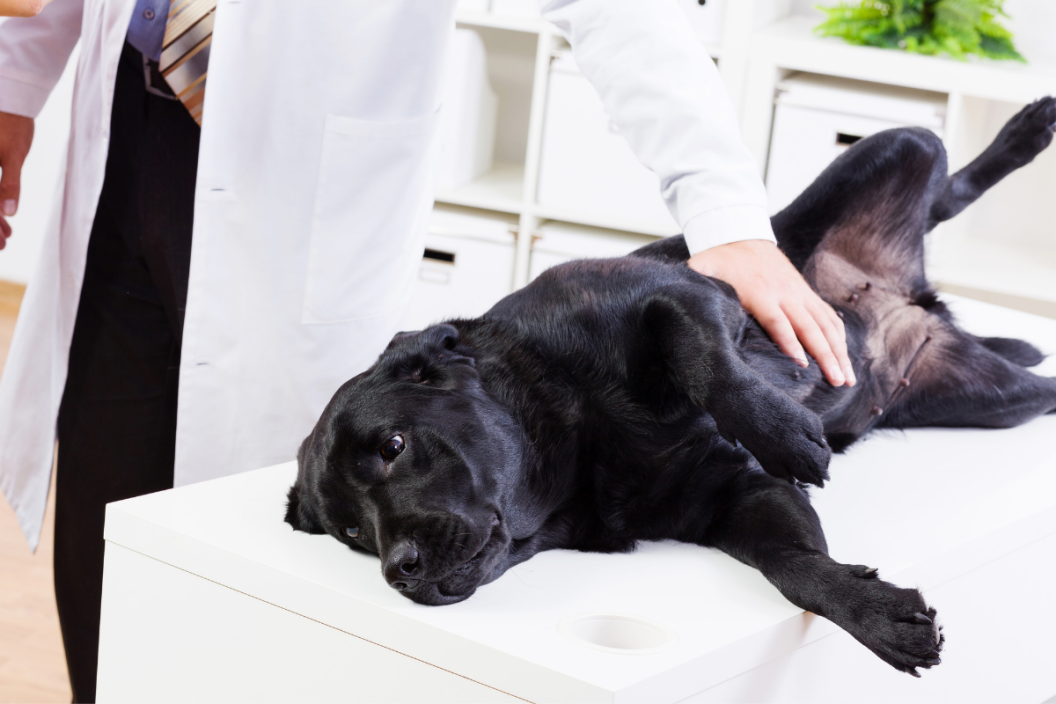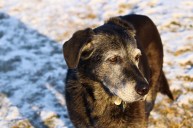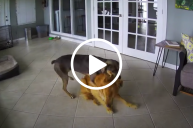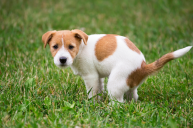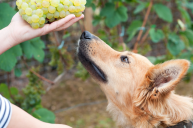Much like humans, most dogs are bound to get sick at one point or another. Some diseases, like canine distemper or parvovirus, are preventable, while others, like seizures or cancer, are often the result of genetics. Then there are illnesses that some dogs may be predisposed to, but can still be avoided throughout their lifetime.
Bloat in dogs is a serious medical condition that's influenced by both genetic and environmental factors—and it can be deadly if dog owners don't recognize the signs. Also known as gastric dilatation-volvulus (GDV), the illness is most common in large dog breeds, such as Great Danes and German shepherds, but it can impact any breed. Fortunately, bloat in dogs can be treated if you act fast enough. What causes bloat in dogs, how can you spot the symptoms, and, more importantly, how can you prevent it? Here's what every dog owner needs to know.
Causes of Bloat in Dogs
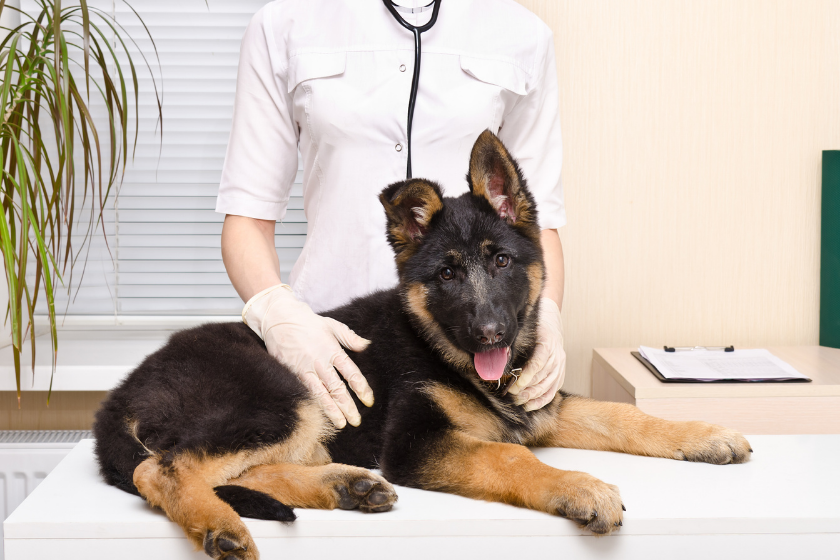
According to Blue Pearl Vet, bloat occurs when a dog's stomach fills with gas and becomes overstretched, which is known as gastric dilatation. In the most serious cases, the stomach twists, in a condition called volvulus. When this happens, flow to the esophagus and duodenum—the beginning of the small intestine—are cut off, trapping more gas in the stomach. Then the stomach also begins to lose blood flow, which restricts the blood supply from the heart to the rest of the body. At this point, bloat becomes a life-threatening condition. Some causes of bloat in dogs are:
- Genetics
- Eating too quickly or too much
- Drinking large amounts of water
- Exercising or playing soon after eating
- Stress
- Age
Big dogs are more prone to bloat than small dog breeds, because their deep chests allow for more stomach expansion when it fills with gas, liquid, or food. Some breeds that are high-risk for bloat include:
- Irish wolfhounds
- Gordon setters
- Irish setters
- Weimaraner
- Saint Bernards
- Akitas
- Bloodhounds
- Standard poodles
- German shepherds
- Dachshunds
- Labrador retrievers
- Great Danes
- Doberman pinschers
Signs of Bloat

RELATED: The One Medical Test Your Dog Needs Regularly and How to Understand the Results
The symptoms of bloat may vary between breeds, so you talk to your vet about specific signs to look for. According to the Veterinary Medical Center of Central New York, some of the general symptoms of bloat are:
- Abdominal distension, which will give your pup a "pot-bellied" appearance
- Rapid heart rate
- Retching or unsuccessful attempts to vomit
- White or pale gums
- Excessive pacing, drooling, or panting
- Inability to stand
- Visible distress
- Labored breathing
If you notice any symptoms of bloat, or just have a feeling something is wrong, it is important to get your dog to the vet as soon as possible to increase their chance of survival. Your vet will do an examination and an X-ray to verify the bloat before proceeding with surgery.
To start, your vet will administer an anesthetic and insert a tube to relieve gas and fluid buildup. They will then rinse the stomach to remove ingested food. Next, they will flip the stomach and perform a gastropexy, in which they tack the stomach to the abdominal wall to stop the stomach from twisting again. If there has been damage to the stomach wall, the vet will remove the affected area.
How to Prevent Bloat in Dogs
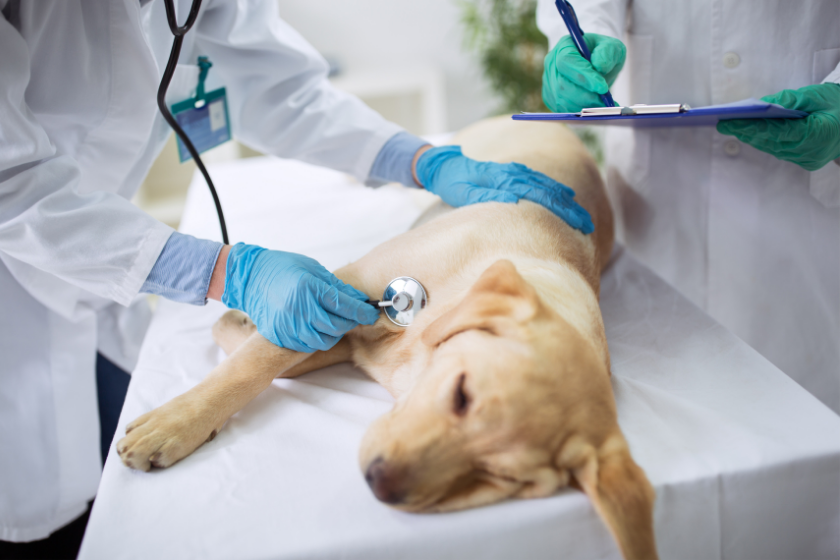
The only way to truly prevent bloat in your dog is through the surgical procedure called gastropexy, which has a 95% success rate. If your dog is high-risk for bloat, talk to your vet about performing a preventative gastropexy. This can be done while they get spayed or neutered, or laparoscopically after six months of age.
Some other preventative measures include:
- Feeding smaller meals throughout the day
- Using a slow feed food bowl
- Avoiding raised food bowls
- Limiting activity for 1-2 hours after eating
- Keeping your dog from drinking large amounts of water
These lifestyle changes may reduce the likelihood of bloat in dogs, but are not guaranteed to prevent it from occurring. Talk with your vet about whether a preventative gastropexy makes sense for your pup or if these preventative measures may be enough.
Do you have a large breed dog? Tell us on our Wide Open Pets Facebook page.
